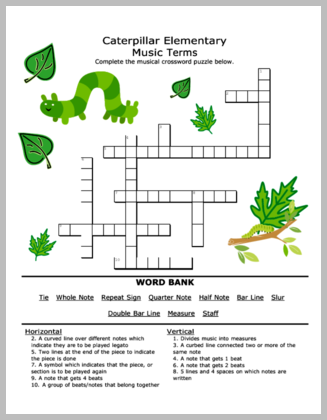 With summer fast approaching many studios are preparing for end-of-school-year recitals. Previously Piano Discoveries discussed how teachers can prepare students to perform in recitals (please see “Preparing Your Students for Recitals (Part 1, Part 2, and Part 3 for a refresher). Now it is time to discuss how to behave and what to do (i.e. etiquette) when attending a recital. These tips apply not only to private studio recitals, but to large-scale concerts as well. Recital etiquette can be broken up into three categories: the performer, the audience, and the teacher. Each of these three plays an important role in the success/outcome of each individual performance and also of the recital as a whole. Accordingly, each has a unique responsibility to follow proper recital etiquette.
With summer fast approaching many studios are preparing for end-of-school-year recitals. Previously Piano Discoveries discussed how teachers can prepare students to perform in recitals (please see “Preparing Your Students for Recitals (Part 1, Part 2, and Part 3 for a refresher). Now it is time to discuss how to behave and what to do (i.e. etiquette) when attending a recital. These tips apply not only to private studio recitals, but to large-scale concerts as well. Recital etiquette can be broken up into three categories: the performer, the audience, and the teacher. Each of these three plays an important role in the success/outcome of each individual performance and also of the recital as a whole. Accordingly, each has a unique responsibility to follow proper recital etiquette.
This post is going to be divided into 3 parts and published separately; one for each the performer, the audience, and the teacher.
(Part 1) The Performer:
(1) Arrive early. Performers should arrive before the start of the recital so that they can find their chairs and get seated, receive any last minute instructions from the teacher, and take some time to relax and become focused. If students arrive early enough they can also take a few minutes to warm up at the keyboard and test out the feel of the piano and the acoustics in the room, as well as make any needed adjustments to the piano bench. Having performers arrive early will also create the best opportunity for the performance to begin on time (something that the audience will greatly appreciate!).
(2) Be prepared. Performers should have their music with them (just in case), be dressed appropriately and go to the bathroom prior to arriving at the recital venue. However, if for some reason a bathroom break is needed during the recital it is best to leave the room quietly and between pieces rather than in the middle of a piece.
(3) Be kind to fellow performers. Everyone who is performing in a recital has worked hard to be there, most are somewhat nervous, and all are doing the best that they can. Accordingly, everyone deserves to be treated with kindness and respect. To do this:
- Do not talk or wiggle about during the other performances.
- Remember to only make nice comments about the dress and skills of the other students. (In other words do not make rude comments about the other students or their performances.)
- Attend the entire recital. It is hurtful and rude to leave the recital after finishing your performance, but before the recital is over. If every student were to leave after their performance then there would be no audience left for the final performer. Every student has worked hard to prepare for their performance and everyone deserves an attentive, full audience.
(4) Be humble and respectful. It is important for the performer to gracefully accept compliments whether the performance was fabulous or a bust. Being conceited or overly down-trodden will often be considered a “turn-off” and that in no way helps the performance or the mood of the audience!
(5) Remember the proper protocol. Performers need to approach the piano from the LEFT side (when possible), remember to smile at the audience, and bow before and after their performance. These small and simple steps make a big difference to how the audience will respond to the performer, which in turn often affects the overall outcome of the performance.
There are many benefits to learning, teaching and applying proper recital etiquette. Teachers can teach proper etiquette to their students during lessons, and especially during preparation for an upcoming recital. Additionally, helpful tips and reminders regarding etiquette can be included in the recital program so that audience members can learn and remember as well. Recital Etiquette is an important social skill that musicians and audiences alike should know and practice. Unfortunately it seems to be frequently neglected at performances these days. However, with time and patience and persistence teachers can provide a positive influence and help build up a community of responsible musicians.
May your upcoming recitals be joyous and successful.
